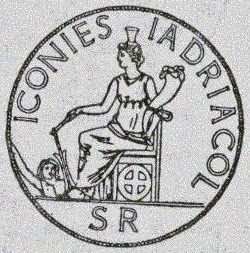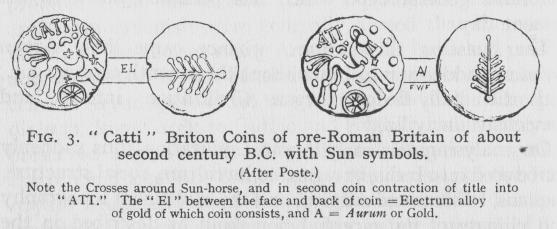A comic writer of Rome named Plautus, amongst others of his works, wrote a piece, called Poenulos, anglice the Carthaginian, in which he introduces a scene, representing Hanno going in quest of his two daughters, who, with their nurse, had been stolen by pirates, and sold to one, who had conveyed them to Kaludon of Oetulus, where having arrived upon intelligenceo f the faqct, he addressed himself to the deity of that land, of the title of whom, though he a stranger, was ignorant, he knew the people of the country had many gods; therefore makes his supplication to the chief, which Plautus has preserved in the Phoenician language, as Shakespeare has done in those pieces where he introduces natives of France. Whom he represents speaking in their own tongues.
You are to note, that the first line is Carthaginian, the second line is Iberian of Eri [i.e. Irish]. And the third is the servile translation thereof into English.
I.
Nith al o nim, ua lonuth sicoathissi ma com syth
An iath al a nin, uaillonnac socriudd se me com ait.
O mighty splendor of the land, renowned, powerful; let him quiet me with repose.
II.
Chin lach chunyth mumys tyal mycthii barii imi achi
Cim laig cungan, muin is toil, mo iocd bearad iar mo agit.
Help of the weary captive, instruct me according to thy will to recover my children after my fatigue.
III.
Liph o can etyth by mithii ad sedin binuthi
Libh a can atac be mitis, ad eaden beannuigte.
With thee O let a pure hope be in due season, in thy blessed presence.
IV.
Byr nar ob sillo homal O nim ubym l syrhoho,
Bir nar ob sillad uimal a nim, ibim a srota.
Deny not a drop of the fountain to the humble, O splendor, I drink at the streams.
V.
Byth-lym, mo thim nocto, thii ne lech anti dias ma chon,
Bi tu le me, mo time nocta, ni leg tu onta dis mo coine,
Be propitious, my fear being respectfully revealed, suffer not my miserable daughters to be stained with pollution.
This address to the unknown deity of the country being concluded, Hanno having had information that his daughters were in the temple of Venus, hastes thither, and utters the following sentiment on the recollection of the attributes of this goddess.
Handone silii hantum bene, silh in mus-tine
Andon sillei anam feni, sillei san baois tetgne.
Although Venus instils vigor, she also instils the fire of concupiscence.
And now having met with Giddeneme the nurse of his daughters, and reproached her, she replies,
Meipsi en este dum, alam na cestin um
Meisi sin; est do me; alam ni ceisd tu me
Respected judge, listen to me, do not hastily question me, (that is) call my fidelity in question.
There is no necessity to offer any remark on the above, such as that; Plautus was a Roman, and must be supposed to have introduced some letter of his characters of his own nation, not known in Carthage, as the h and y, (and these are the only Roman letters in these lines) nor yet whether he copied in Phoenician or Roman figures, nor yet whether many , few, or any errors have been occasioned in intervening transcripts..
http://hebrewnations.com/articles/lingu ... irish.htmlWell, here's another version with an English translation. It is from a site trying to connect the lost tribes of the Jews or something like that. And there is a discussion underneath the article about its accuracy.
The problem, apart from everything else, is the nature of splitting up all the joined letters into separate words as well as scribal errors and so on.
I think the English translation here is a rather pompous one typical of someone translating from Roman and showing off.
As I don't know any old Irish I can't say exactly what it would translate as but certainly not in that lofty style. The language works more with prepositions and little words to convey ideas.
I would imagine that most academics would ignore the possible Irish connection because they don't know any Irish and certainly wouldn't expect it so they won't be looking for it.



